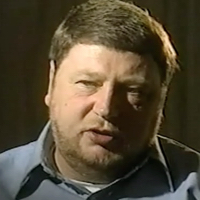Rascals case in brief
In the beginning, in 1989, more than 90 children at the Little Rascals Day Care Center in Edenton, North Carolina, accused a total of 20 adults with 429 instances of sexual abuse over a three-year period. It may have all begun with one parent’s complaint about punishment given her child.
Among the alleged perpetrators: the sheriff and mayor. But prosecutors would charge only Robin Byrum, Darlene Harris, Elizabeth “Betsy” Kelly, Robert “Bob” Kelly, Willard Scott Privott, Shelley Stone and Dawn Wilson – the Edenton 7.
Along with sodomy and beatings, allegations included a baby killed with a handgun, a child being hung upside down from a tree and being set on fire and countless other fantastic incidents involving spaceships, hot air balloons, pirate ships and trained sharks.
By the time prosecutors dropped the last charges in 1997, Little Rascals had become North Carolina’s longest and most costly criminal trial. Prosecutors kept defendants jailed in hopes at least one would turn against their supposed co-conspirators. Remarkably, none did. Another shameful record: Five defendants had to wait longer to face their accusers in court than anyone else in North Carolina history.
Between 1991 and 1997, Ofra Bikel produced three extraordinary episodes on the Little Rascals case for the PBS series “Frontline.” Although “Innocence Lost” did not deter prosecutors, it exposed their tactics and fostered nationwide skepticism and dismay.
With each passing year, the absurdity of the Little Rascals charges has become more obvious. But no admission of error has ever come from prosecutors, police, interviewers or parents. This site is devoted to the issues raised by this case.
On Facebook
Click for earlier Facebook posts archived on this site
Click to go to
Today’s random selection from the Little Rascals Day Care archives….
Click for earlier Facebook posts archived on this site
Click to go to
Today’s random selection from the Little Rascals Day Care archives….
Another child-witness, now grown, spills the beans
Sept. 8, 2015
“Jennifer (a pseudonym) reached out to me after seeing an interview I gave about the McMartin Preschool trial…. She said she had been involved in a similar case as a child and that her experiences with the police, the judicial system, and a series of therapists mirrored those of the McMartin children. Now an adult with a career and family of her own, she agreed to speak with me about her experiences during the trial and in the decades since….
“Jennifer’s experiences illustrate the consequences of the misguided ‘belief’ in children that so many therapists, parents, and cops professed during the 1980s….”
– From “Moral Panic and the Myth of Recovered Memory” by Richard Beck at Literary Hub (Aug. 18)
Although Beck presents more as a historian than a journalist, his interview with Jennifer is a significant addition to the sparse roster of recanting (or not) child-witnesses. Not surprisingly, her account offers numerous parallels not only to McMartin but also to Little Rascals:
- “lots of phone conversations and meetings” among parents
- an interviewer with “anatomically correct dolls”
- her initial insistence that “nothing had happened”
- “a tour of the jail” arranged by the therapist to assure her that the supposed molester was safely behind bars
- her capitulation in the face of endless therapy sessions, leading her to “finally just start… making stuff up.”
- the eventual overturning of her day-care teacher’s conviction
Might Jennifer’s coming forward, however tentatively, lead the way to more recantations by child-witnesses?
Assistant attorney general complains: ‘Innocence is in vogue now’

linkedin.com
Jess Mekeel
Aug. 11, 2016
“[North Carolina] Assistant Attorney General Jess Mekeel said [Johnny] Small’s motion should be dismissed.
“ ‘Innocence is in vogue now,’ he told the judge, the Associated Press reported.
“Exonerations are certainly on the rise. Last year, about 150 people were exonerated, a record number, according to the National Registry of Exonerations….
“Mekeel [said] he considers reopening cases based on recanted testimony to be a threat to the American legal system.
“ ‘This is an attempt to retry a 28-year-old case. Twelve jurors made that determination already. They heard the evidence. They concluded the defendant was guilty,’ Mekeel said, according to WRAL. ‘They jeopardize the stability and reliability of our justice system.’ ”
– From “Man spent 28 years in prison after his friend accused him of murder. Now, the friend said he lied” by Travis M. Andrews in the Washington Post (Aug. 9)
“Innocence is in vogue now” – what a revealing glimpse of the inner prosecutor! As if exonerations were a fad, an unwarranted threat to “the stability and reliability of our justice system.”
Is it any wonder that district attorneys such as Jon David so eagerly pursue innocence advocates such as Chris Mumma?
![]()
In search of ‘clues or indicators’ for ritual abuse
Dec. 28, 2012
Let’s not leave behind “Ritual Abuse: What It Is, Why It Happens, and How to Help” without considering Appendix B, “Similarities in the Lives of Ritual Abuse Survivors.”
Author Margaret Smith “asked survivors to note any clues or indicators in their lives that may have suggested they were ritually abused as a child.” She then “organize(d) these responses into meaningful categories.”
Like the symptom charts of psychologist Catherine Gould, these “meaningful categories” strain to make the wildly anecdotal seem scientific.
“Reactions to Objects That Trigger Memories,” for instance, includes not only “Preference for red meat,” but also “Hated read meat. I have been a vegetarians since I was a child.”
“Indicators from Childhood or Adult Behavior” covers both “Threw up a lot” and “Would never allow myself to vomit.”
And just what manner of abuse might be revealed by “clues” such as – I wish I were kidding – “Addicted to book reading”?
Kelly’s jury was rife with problems not visible at beginning

pbs.org/wgbh/frontline
Dennis T. Ray
Aug. 19, 2016
The jury is empaneled in Farmville, N.C., where Bob Kelly’s trial has been moved because of pretrial publicity in Edenton.
Dennis T. Ray would turn out to be a major mischief-maker both inside and outside the jury room. Ray read aloud from a contraband Redbook article on how to identify child molesters, disobeyed the court’s instruction not to visit the alleged crime scenes, reported that a jailhouse snitch had shared personal knowledge of Kelly’s guilt and displayed a supposed “magic key” referred to by several child witnesses.
 Unfortunately, Judge Marsh McLelland told defense attorneys he didn’t consider Ray’s rogue behavior – or that of a second juror, who dramatically revealed during deliberations that he himself had been abused as a child – to be a “tremendous problem.”
Unfortunately, Judge Marsh McLelland told defense attorneys he didn’t consider Ray’s rogue behavior – or that of a second juror, who dramatically revealed during deliberations that he himself had been abused as a child – to be a “tremendous problem.”
At least three jurors would later express deep doubts about the guilty verdict.
Roswell Streeter, at 28 the youngest juror, would write:
“I’ll say this to the last day of my life, that the evidence that came through the courtroom did not prove that Bob Kelly committed any kind of sex abuse.” He told “Frontline” he had felt intimidated and confused.
Mary Nichols was suffering from advanced leukemia, and Marvin Shackelford had suffered two heart attacks. Both acknowledged afterward that worries about their health had moved them to vote guilty simply to cut short deliberations and go home. It had been nine months since the trial began.
![]()











0 CommentsComment on Facebook